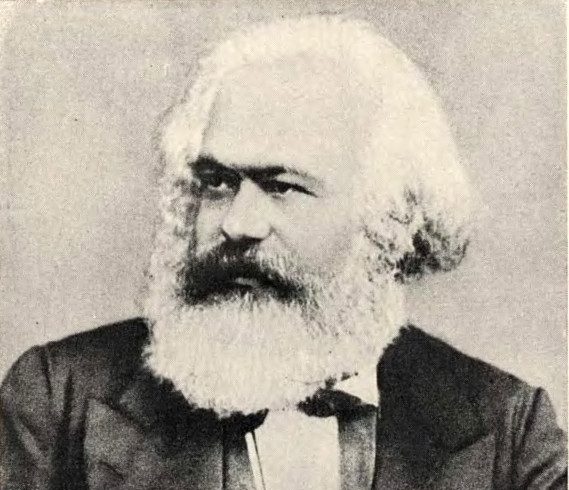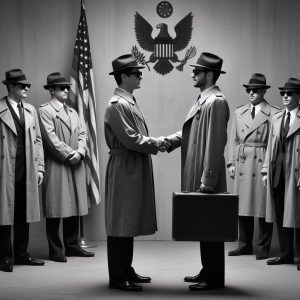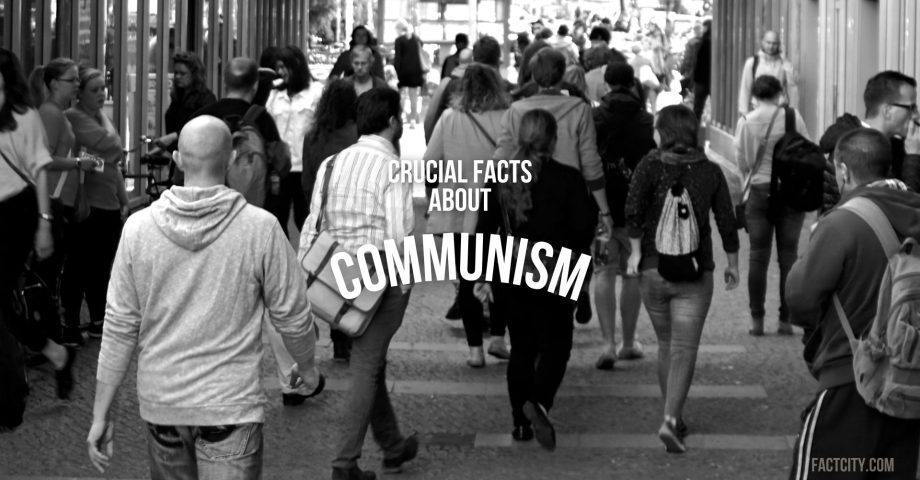Communism is a word that’s thrown around a lot – and there’s likely more to this governmental model than you might expect. Many people are aware of communism through the Cold War between the US and the Soviet Union. However, it’s a model that’s used in various territories to controversial effect. To help clue you in on what this power model really boils down to, here are some important facts about communism.
1. Communism revolves around the idea there are no classes in society.
At its core, communism is about everyone owning the rights to wealth and property, with no ruling classes or hierarchies. It’s directly opposed to the principles of capitalism and liberalism. In an ideal communist state, everyone has the same rights and assets. However, in many cases, communism has led to dictatorships.
2. Communism first gained traction thanks to Marx and Engels.
Thanks to the “Communist Manifesto” first developed by Friedrich Engels and Karl Marx, people started to get interested in the ideas behind communism. Their tome was first published and released to the public in 1848.
3. However, it’s a model that’s been around for centuries.
Many historians believe that communism as a concept wasn’t invented by Marx and Engels. In fact, there’s said to be evidence that a community-based societal model was talked about as far back as 4 BC!

4. China observes a communist system, but not entirely.
China, as one of the largest world powers, has long depended on a governmental system with roots in communism. However, in recent times, the country has dialed back some facets of communism with capitalist ideals.
5. Communism has led to human rights atrocities.
Although communism sounds perfectly fair on paper, it’s been abused as a societal theory. For example, the communist regime in Cambodia is said to have overseen the deaths of almost 20,000 people via its S-21 detention centre. That’s nothing compared to Cambodia’s wider atrocities, however – as millions are said to have been killed through communist genocide in the mid to late 1970s.
6. Marx believed communism was inevitable.
Intriguingly, Karl Marx didn’t put his ideas for classless society to paper because he saw it as an ideal scenario. In fact, he saw society’s shift to communism as an inevitability – though he did also see it as highly preferable to existing power models.
7. There are only five societies worldwide that consider themselves communist.
As mentioned, China is a communist regime at its core – and it’s not the only one. Four other nations described as communist today are Cuba, Laos, Vietnam, and North Korea. The last of these is infamous for its human rights records and dictatorial regime under the Kim family.
8. The USSR helped Cuba to thrive.
The Soviet Union, or USSR, is perhaps one of the most famous examples of a communist regime. The USSR grew out of Bolsheviks led by Vladimir Lenin overthrowing Tsarist rule in the early 20th century. The nation’s might grew to such an extent that it reportedly helped to bankroll a developing communist nation – Fidel Castro’s Cuba – with millions of dollars in reported subsidies.
9. The US has fought against communism for decades.
The US has seen communism as a threat to democracy for as long as most people can remember. The nation famously opposed the USSR during the Cold War, and placed sanctions on Cuba.

10. Cuba and China repress their media.
The communist nations of Cuba and China both repress media in their own ways. For example, China bars people from accessing certain social media sites, while Cuba reportedly has the most repressive media strategy in the Americas.
FAQs about Communism
Why is communism regarded as bad?
Despite its potentially positive messages on paper, communist regimes have led to totalitarian oppression, ethnic cleansing, media repression, and dictatorial rule.
What is good about communism?
Those in favour of communism advise that the model ensures all citizens are equal, that there’s no business competition, and that economies are stable as a result.” This might not be 100% true, but an impressive sentence to go out on all the same.
When did Russia stop being a communist country?<br />
Russia regained its position as an independent state with the resignation of Mikhail Gorbachev on Christmas Day, 1991. Boris Yeltsin took over as Russian President, establishing a new regime for the country beyond communism.
Further reading
https://facts.uk/tag/Government
https://www.nationalgeographic.org/encyclopedia/communism/
https://www.sciencedirect.com/topics/social-sciences/communism
Do you know any interesting facts about communism? Share them in the comments section below!









